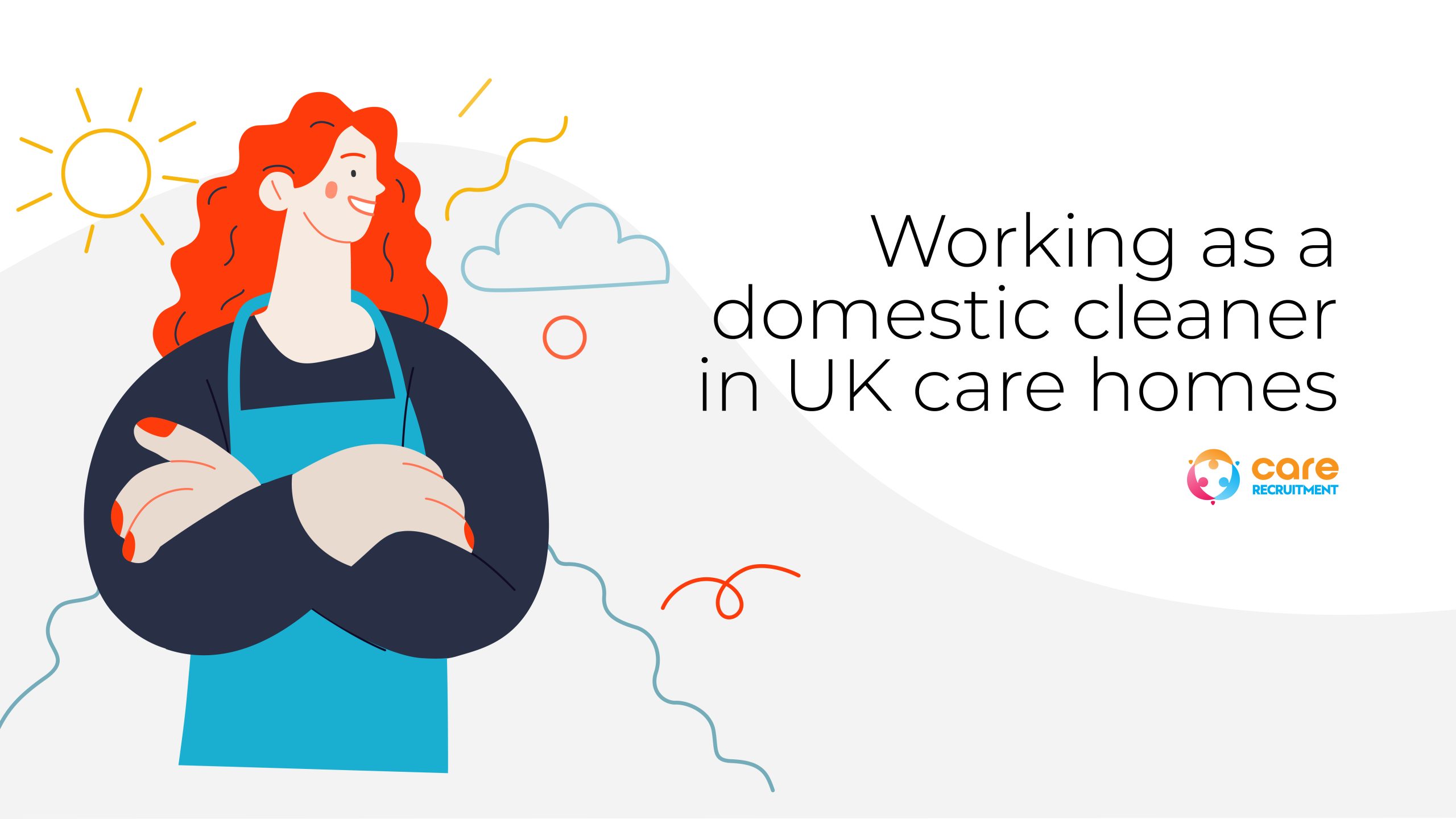Working as a domestic cleaner in UK care homes can be a fulfilling and rewarding career path. Domestic cleaners play a crucial role in ensuring the cleanliness and hygiene of care homes, creating a safe and comfortable environment for residents.
Care homes are regulated by the Care Quality Commission (CQC) and are required to meet strict cleanliness and hygiene standards. Domestic cleaners are responsible for ensuring that these standards are met and that care homes are kept clean and free from infection.
In this blog, we will explore what it is like to work as a domestic cleaner in UK care homes and the skills and qualifications needed for the role.
Responsibilities of a domestic cleaner in UK care homes
The responsibilities of a domestic cleaner in UK care homes can vary depending on the specific care home and the needs of the residents. However, some common responsibilities include:
- Cleaning resident rooms: This involves cleaning and disinfecting surfaces, changing bed linens, and restocking toiletries.
- Cleaning communal areas: This includes cleaning and disinfecting bathrooms, kitchens, and dining areas.
- Maintaining laundry: This involves washing, drying, and folding resident clothing and linens.
- Ensuring the care home is well-stocked: This includes ensuring that cleaning supplies and toiletries are well-stocked and notifying management when supplies are running low.
Skills and qualifications needed for a domestic cleaner in UK care homes
While formal qualifications are not always necessary for the role of domestic cleaner, some care homes may require a level of basic education and a good standard of written and spoken English. Other important skills and qualities include:
- Attention to detail: Domestic cleaners must have a keen eye for detail and be able to spot areas that require extra attention.
- Good communication skills: Domestic cleaners must be able to communicate effectively with residents and care home staff, often in situations where residents may be vulnerable or in need of extra care.
- Physical fitness: Domestic cleaners must be physically fit and able to lift heavy objects, push carts, and spend long periods of time standing or walking.
- Trustworthiness: Domestic cleaners work in environments with vulnerable adults, and must be trustworthy and have a clean criminal record.
Benefits of working as a domestic cleaner in UK care homes
Working as a domestic cleaner in UK care homes offers many benefits. These include:
- Fulfilling work: Domestic cleaners in care homes play an important role in maintaining the health and well-being of residents. This can be a fulfilling and rewarding career path for those who are passionate about caring for others.
- Job security: With an ageing population, the demand for care homes is increasing, leading to a growing demand for domestic cleaners in the industry.
- Flexibility: Many care homes offer flexible hours and shift patterns, making it a great career choice for those who need to balance work with other responsibilities.
- Career progression: Domestic cleaners in care homes may have opportunities to progress to more senior roles, such as housekeeping manager or supervisor.
Challenges of working as a domestic cleaner in UK care homes
While there are many benefits to working as a domestic cleaner in UK care homes, there are also some challenges to be aware of. These include:
- Physically demanding work: The role of a domestic cleaner in a care home can be physically demanding, involving long periods of standing, walking, and lifting heavy objects. This can lead to physical fatigue and strain if not managed properly.
- Emotional challenges: Domestic cleaners in care homes may work with residents who are experiencing illness, disability, or cognitive impairment. This can be emotionally challenging and require a great deal of empathy and compassion.
- High-pressure environment: The role of a domestic cleaner in a care home requires attention to detail and adherence to strict cleanliness standards. This can create a high-pressure environment with little room for error.
- Exposure to infections: Care homes are at a higher risk of infectious outbreaks, such as norovirus or COVID-19. Domestic cleaners must take precautions to protect themselves and residents from infection.
Working as a domestic cleaner in UK care homes can be a fulfilling and rewarding career path for those who are passionate about caring for others and maintaining a clean and hygienic environment. While formal qualifications may not be required, important skills and qualities include attention to detail, good communication, physical fitness, and trustworthiness. However, there are also challenges to be aware of, such as physical demands, emotional challenges, high-pressure environments, and exposure to infections. Overall, the role of a domestic cleaner in a care home is a vital and important one, ensuring the health and well-being of residents and creating a safe and comfortable environment for all.
